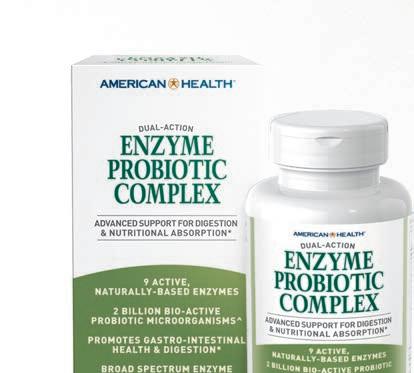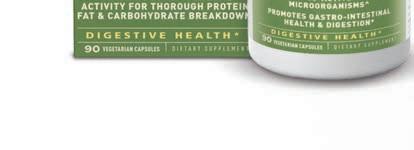
5 minute read
EXPERT’S CORNER
dry skin savers An inside-out guide to nourishing your skin
Q: Why are my cuticles and skin so dry all the time? I’ve heard that fish oil can help. Am I deficient in omega fats? What are other nutrient imbalances that cause dry skin? —Leanne W., St. Cloud, Minn
Advertisement
You’re right to think that fats are key. And especially in winter, a low-fat diet combined with cold temperatures can really stress the skin. Luckily, there are simple, natural ways to support skin health and get your glow back.
Almost all skin care salons emphasize exfoliation. But you can do this much less expensively, and daily, in the comfort of your home with dry skin brushing. I highly recommend this pleasurable ritual as part of your self-care routine. I use a long handled Bass or Yerba Prima fairly stiff bristle brush first thing in the morning, after drinking a big glass of water. Brush the belly clockwise (to follow the large intestine) and up the limbs, front and back, towards the heart. Use the long handle to scrub down the back. I like to use a softer Bass or Sephora brush for my face and neck—brush upwards on the face.
Another tip for beautiful skin is to moisturize within 3 minutes of stepping out of the shower. Water removes natural oils from the skin, and this is especially true if you use soap. I don’t recommend soap for bathing unless you really have dirt or grease streaks on your skin, and even then, oil will actually remove stains more gently. It’s okay to soap up your hairy parts, but many people use too much soap, too often, and this contributes to dry skin. Also avoid putting petroleum-based products (such as Vaseline or Eucerin) on your skin. They can plug up your pores and lead to blackheads or boils. A:
Supportive Fats In terms of nourishing your skin, nails, and hair from the inside, minimally processed fish or vegetable oils are excellent options. If you like fish, the “SMASH” species— salmon, mackerel, anchovy, sardine, and herring—are good options. These small fish are less likely to be contaminated with mercury than larger fish. If you don’t eat a lot of fish, take 3,000–4,000 mg per day of a high-quality fish oil supplement.
For a vegetable-based skin nutrient that can be used topically and taken internally, coconut oil can’t be beat. It has been shown to improve the appearance of fine skin wrinkles and speed exfoliation of the outer layer of dead skin cells. In addition, coconut oil (especially its lauric acid component) is anti-microbial, effectively reducing fungal, bacterial, and viral skin infections.
You can buy a tub of organic coconut oil quite inexpensively. Try rubbing a small amount (¼ cup) all over your body right after a shower. It’s really fantastic. Other ingredients that will contribute to smooth, moist, beautiful skin—which can be eaten or applied topically—include shea butter, cocoa butter, jojoba oil, and aloe vera (juice for internal, gel for topical).
Olive oil is particularly great for dry hair. Rub up to a cup of olive oil into your scalp a half-hour before washing your hair, then wrap your head in a hot, thin, wrung-out towel. The heat helps the oil penetrate more deeply into the scalp and hair follicles.
Dry skin may also be a sign of omega-3 fatty acid deficiency. These oils work with water to keep skin smooth and hydrated. Omega-3 fats help normalize the good fats present in your skin and prevent dehydration. They’re also anti-inflammatory, so they calm irritated skin when taken internally. Consider increasing your dose during the winter months. It’s also easier to forget to drink water when the weather is cooler and you’re not sweating as much. So remember to stay hydrated!
The Skin-Saving Diet Dietary tips for healthy skin are the same as for a healthy life. Eat fresh vegetables— they’re critically important to good health, and should be the centerpiece of every meal. Veggies are by far the most nutrientdense of all the food categories, packed with fiber, vitamins, minerals, and healing pigments. They’re moist foods, thus contributing to hydration. And eating a diet high in carotenoids from carrots, squashes, and robust greens will eventually impart a gently bronzed look to the skin that’s much healthier than going to a tanning booth.
Gut health has a huge impact on skin health because the gut is where good nutrients are absorbed. In fact, there is a good amount of research showing that a healthy gut microbiome can help reduce acne, among other skin conditions. Fermented foods promote the growth of good bugs in the gut, which help to break down food and make nutrients easier to absorb. If you don’t care for fermented foods, take a high quality probiotic.
To keep your skin (and yourself) as healthy as possible, try to avoid processed grains and sugars, and any “food” that comes in a box. Instead, fill up your pantry with apples, squashes, whole grains and legumes, seaweed snacks, tangerines, and nuts. (Keep nuts in the fridge so they don’t go rancid.) At work, keep tinned fish, durable fruit, and hard-boiled free-range eggs on hand for snacking. And just say no to crackers, chips, cookies, and baked goods that came from a box. Your skin— and the rest of you—will appreciate it.
From beginning to end support all the way through.







When it comes to healthy digestion, sometimes one approach isn’t enough. That’s why Dual-Action Enzyme Probiotic Complex gives you the best of both worlds… enzymes andprobiotics all in one formula.
Enzyme Probiotic Complex contains 9 active, naturally-based enzymes that break food down into absorbable nutrients for energy and cell growth.* It also contains 2 billion bio-active probiotics^ that promote your natural digestive process and support immune health.* And, since Enzyme Probiotic Complex works on fats, carbohydrates and proteins... you can be confident that you’re getting complete digestive support from just one convenient complex.


So for support from top to bottom… discover Enzyme Probiotic Complex.
Available at health, natural food and vitamin specialty stores.











